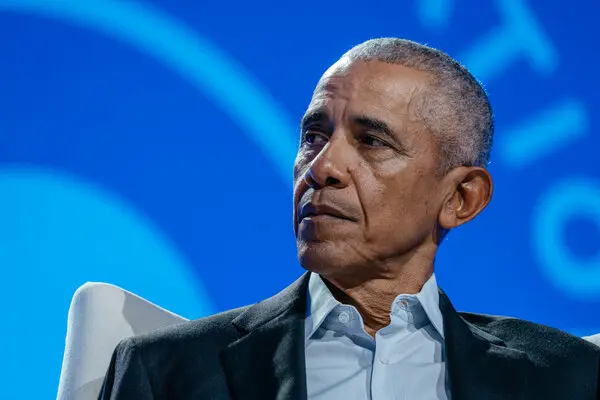Former US President Barack Obama has stirred intense online debate following comments made on a recent episode of the IMO podcast, co-hosted by his wife Michelle Obama and her brother Craig Robinson.
In the episode, titled “Focus On What’s Right About Young Men with Barack Obama,” Obama expressed the view that men would benefit from having gay friends, particularly to create more inclusive spaces for young people who may be gay, non-binary, or otherwise different from the mainstream. “Men need a gay friend to show empathy and kindness,” he said. “If you then have a boy who is gay or nonbinary or what have you… they have someone that can go, ‘Okay, I’m not alone in this.’”
His remarks, though delivered in a reflective and light-hearted tone, have triggered a cultural flashpoint online. Supporters lauded his push for broader emotional understanding among men, while critics accused him of stereotyping or reducing empathy to identity.
Applause for Empathy and Inclusion
Many listeners interpreted the statement as a call for emotional diversity within male friendships. Supporters argued that friendships with people from different walks of life—particularly LGBTQ+ individuals—can expand one’s perspective, foster empathy, and help normalize emotional vulnerability. Some felt the idea was less about prescribing who men must befriend and more about challenging traditional masculine norms that discourage emotional openness.
Others pointed out that men often struggle with expressing their feelings or forming deep emotional connections. By encouraging relationships across diverse identities, Obama was seen as promoting a healthier model of masculinity—one rooted in understanding, support, and empathy.
In some regions, including Kenya, the message resonated as a broader call for inclusive social environments and the celebration of differences. The concept of finding strength in diversity—whether through culture, gender, or sexuality—was welcomed by many who see empathy as a skill best learned through human connection.
Pushback and Polarisation
Yet, not everyone welcomed the idea. Critics argued that the statement suggested straight men are inherently lacking in emotional intelligence or incapable of developing empathy without outside help. Others felt it placed undue weight on identity in shaping friendship dynamics.
Some viewed the comments as part of a broader cultural trend they see as overemphasizing gender and sexuality. To them, Obama’s remarks represented an unnecessary politicization of friendships, with the suggestion that certain identities carry an exclusive moral or emotional value.
Others saw it as a problematic generalisation—arguing that anyone, regardless of sexual orientation, can model kindness and emotional depth. Some conservative commentators rejected the idea outright, framing it as ideological overreach into personal relationships and accusing Obama of promoting social engineering.
A Conversation That Lingers
Obama’s words have clearly sparked more than just a fleeting viral moment. The intensity of the reactions underscores how topics like masculinity, emotional development, and identity remain highly charged in today’s global discourse.
While some hear a call for deeper empathy and inclusion, others hear an implicit critique of traditional male roles or a forced blending of identity politics with private life. What’s clear is that the conversation has exposed enduring divisions—and opened space for further dialogue on what it means to be a man in a changing world.

